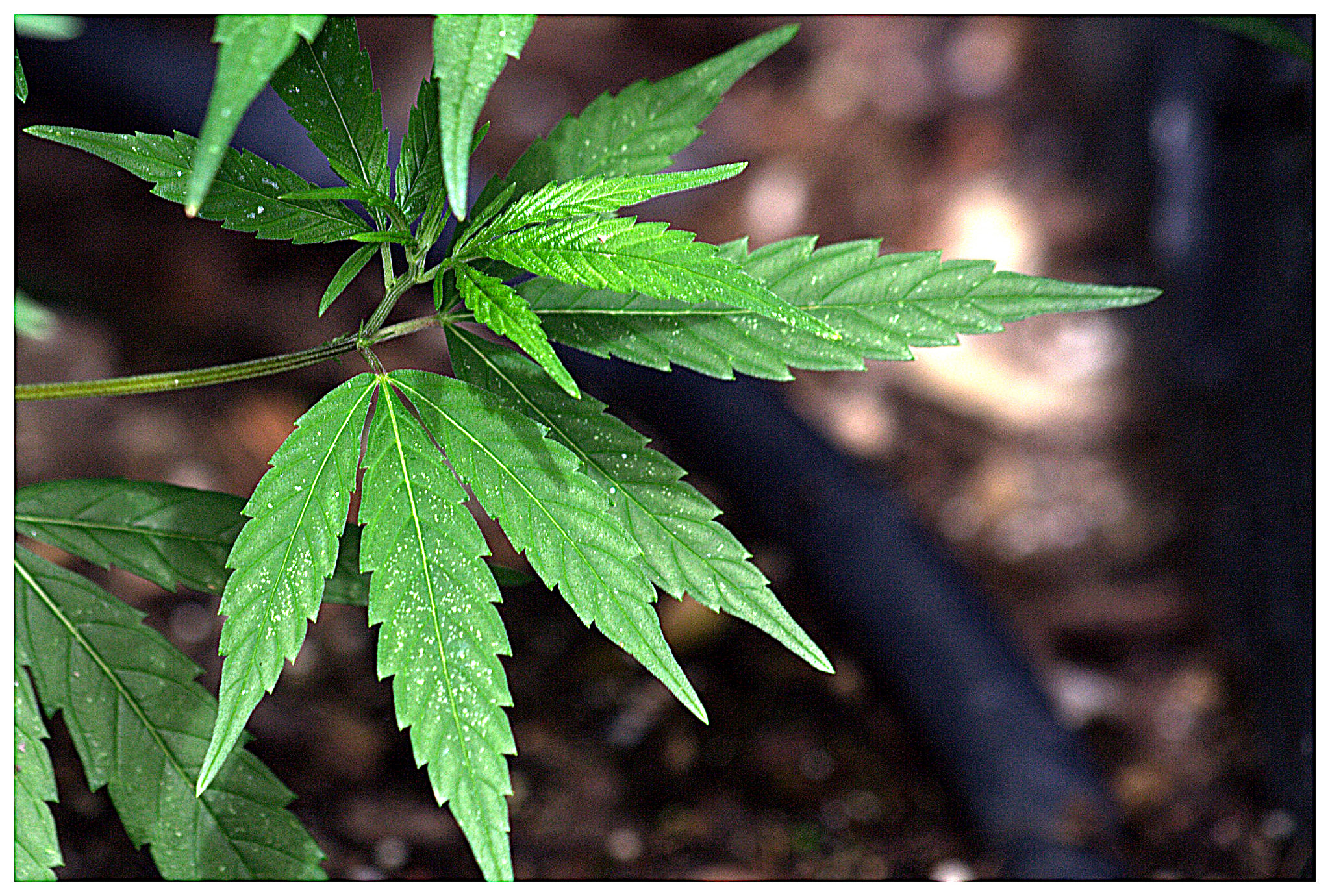Politics
After Virginia GOP Governor’s Marijuana Veto, Democratic Senators Say Legal Sales Likely Won’t Happen Until 2027 Or Later

Democratic senators in support of legal marijuana sales in Virginia said at a recent event that in light of Gov. Glenn Youngkin’s (R) veto of a retail cannabis bill last month, it will likely be 2027 or later before adult-use shops can legally open their doors.
“I’m very direct, and sometimes folks don’t like to hear the harsh truth, but it’s the harsh truth,” said Sen. Aaron Rouse (D), who sponsored the retail sales bill in the Senate. “There’s a really big mountain to climb with this governor and his administration. I think he will veto setting up an adult cannabis market regardless of what we send him.”
“By 2027, there will be a new governor in Virginia,” added Sen. Adam Ebbin (D), who sponsored marijuana sales legislation this session and in years past. “It’s possible that after the 2025 gubernatorial election, that someone will take office in January of 2026 who would sign an adult-use marketplace bill.”
“That means that, whether it was in 2027 or thereabouts,” Ebbin continued, “we could expect to see more a regulated market for non-medical use or adult use in Virginia.”
Use, possession and limited cultivation of cannabis by adults is already legal in the commonwealth, the result of a Democrat-led proposal sponsored by Ebbin that was approved by lawmakers in 2021. But Republicans, after winning control of the House and governor’s office later that year, subsequently blocked the required reenactment of a regulatory framework for retail sales.
This year, with Democrats in control of both legislative chambers, lawmakers passed a new legal sales bill, sending it to Youngkin for his consideration in late February. A month later, the governor vetoed the bill, writing in a veto message that “the proposed legalization of retail marijuana in the Commonwealth endangers Virginians’ health and safety.”
“Addressing the inconsistencies in enforcement and regulation in Virginia’s current laws does not justify expanding access to cannabis,” the governor said.
Rouse and Ebbin spoke about Youngkin’s veto and the outlook for the future of retail cannabis sales at a webinar hosted by the Arlington Committee of 100 last week.
“I’m not going to try to rationalize the governor’s statement,” Ebbin said at the event, noting that Youngkin “has been antagonistic to this now-legal-to-possess plant in Virginia throughout his remarks on cannabis.”
Still, he acknowledged that supporters likely don’t have the votes to override Youngkin’s veto during this week’s veto session in the legislature “because the bill passed by a fairly slim margin.”
“We’d need to actually attract support from the governor’s party, and we don’t anticipate that happening,” the senator said. “So we have to get in a mode where we start over in a future year.”
Added Rouse: “This is a great starting point for us… But ultimately, I think we will just have to wait our time until we get a more friendlier person into the governor’s mansion.”
In the House, Del. Paul Krizek (D), who led this year’s cannabis retail bill in that chamber, has already said he’s intending to support a legal sales bill next session.
“We really did craft a wonderful piece of bicameral legislation that even garnered bipartisan support, albeit not as many members as I would have expected, but that was probably due to Governor’s antipathy toward it,” he told Marijuana Moment after Youngkin’s veto. “So, we have a bill we can introduce next session that will only need some minor adjustments (I did see some small improvements we can make) and gives us a head start.”
Ebbin made a similar pledge during the recent webinar.
“As I have for several years, I’ll keep fighting for a regulated and safe recreational adult-use cannabis marketplace and continue to welcome folks joining me legislatively,” he said. “It’s well past time for the governor and his Republican colleagues to take this seriously.”
Rouse and Ebbin were initially at odds over how to structure retail cannabis sales when this legislative session began. A bill from Ebbin, SB 423, prioritized opening the legal market quickly, by allowing the state’s existing medical marijuana operators to sell recreational products almost immediately. Rouse’s measure, by contrast, would take longer to implement legal sales but ensure that no single group of operators got a head start.
Ebbin said late last year that he was “confident” a legal sales proposal could reach the governor’s desk.
But when asked about concerns from some advocates earlier this year that Youngkin would veto whatever measure lawmakers sent to his desk, Ebbin replied: “I’m working to pass a bill. You want me to talk about hypotheticals, about what could happen if it was vetoed, when it hasn’t even passed yet?”
Ebbin championed Virginia’s 2021 marijuana legalization law and, last legislative session, was the sponsor of another legal sales bill that was blocked by the then-Republican-controlled House.
Ahead of the veto, Youngkin had hinted at his intentions to veto the bill, telling a local reporter: “Anybody who thinks I’m going to sign that legislation must be smoking something.”
At one point earlier this session, however, it appeared the retail cannabis bill could become part of a grand deal between Youngkin and legislative Democrats. In December, Senate President Pro Tempore Louise Lucas (D) alluded to a compromise involving a sports stadium project the governor supported. But that deal never materialized, and Democrats left the governor’s proposed arena plan out of budget legislation.
The legislation sent to Youngkin would have begun licensing marijuana businesses later this year, with sales slated to kick off on May 1, 2025. Sales to adults 21 and older of up to 2.5 ounces of marijuana flower would be allowed, with purchases taxed at 11.625 percent. Local governments could ban marijuana establishments, but only with the support of local voters.
Here’s what Virginia’s lawmaker-passed retail sales legislation would have done:
- Retail sales could begin as of May 1, 2025.
- Adults would be able to purchase up to 2.5 ounces of marijuana in a single transaction, or up to an equivalent amount of other cannabis products as determined by regulators.
- A state tax of 11.625 percent would apply to the retail sale of any cannabis product. Of that, 8 percent would go to the state, local governments would get 2.5 percent and 1.125 percent would fund schools.
- The Virginia Cannabis Control Authority would oversee licensing and regulation of the new industry. Its board of directors would have the authority to control possession, sale, transportation, distribution, delivery and testing of marijuana.
- Local governments could ban marijuana establishments, but only if voters first approve an opt-out referendum.
- Locations of retail outlets could not be within 1,000 feet of another marijuana retailer.
- Cultivators would be regulated by space devoted to marijuana cultivation, known as canopy size. Both indoor and outdoor marijuana cultivation would be allowed, though only growers in lower tiers—with lower limits on canopy size—could grow plants outside. Larger growers would need to cultivate plants indoors. Secure greenhouses would qualify as indoor cultivation.
- Only direct, face-to-face transactions would be permitted. The legislation would prohibit the use of other avenues, such as vending machines, drive-through windows, internet-based sales platforms and delivery services.
- Existing medical marijuana providers that enter the adult-use market could apply to open up to five additional retail establishments, which would need to be colocated at their existing licensed facilities.
- Serving sizes would be capped at 10 milligrams THC, with no more than 100 mg THC per package.
- No person could be granted or hold an interest in more than five total licenses, not including transporter licenses.
- People with convictions for felonies or crimes involving moral turpitude within the past seven years would be ineligible to apply for licensing, as would employees of police or sheriff’s departments if they’re responsible for enforcement of the penal, traffic or motor vehicle laws of the commonwealth.
- An equity-focused microbusiness program would grant licenses to entities at least two-thirds owned and directly controlled by eligible applicants, which include people with past cannabis misdemeanors, family members of people with past convictions, military veterans, individuals who’ve lived at least three of the past five years in a “historically economically disadvantaged community,” people who’ve attended schools in those areas and individuals who received a federal Pell grant or attended a college or university where at least 30 percent of students are eligible for Pell grants.
- “Historically economically disadvantaged community” is an area that has recorded marijuana possession offenses at or above 150 percent of the statewide average between 2009 and 2019.
- Tax revenue from the program would first cover the costs of administering and enforcing the state’s cannabis system. After that, 60 percent of remaining funds would go toward supporting the state’s Cannabis Equity Reinvestment Fund, 25 percent would fund substance use disorder treatment and prevention, 10 percent would go to pre-K programs for at-risk children and 5 percent would fund a public health and awareness campaign.
- Adults could also share up to 2.5 ounces with other adults without financial remuneration, though gray-market “gifting” of marijuana as part of another transaction would be punishable as a Class 2 misdemeanor and a Class 1 misdemeanor on second and subsequent offenses.
- A number of other new criminal penalties would be created. Knowingly selling or giving marijuana or marijuana paraphernalia to someone under 21, for example, would be a Class 1 misdemeanor, punishable by up to a year in jail and a maximum $2,500 fine, as would knowingly selling cannabis to someone reasonably believed to be intoxicated. It would also be a Class 1 misdemeanor to advertise the sale of marijuana paraphernalia to people under 21.
- Knowingly obtaining marijuana on behalf of someone under 21 would be a Class 1 misdemeanor.
- People under 21 who possess or use marijuana, or attempt to obtain it, would be subject to a civil penalty of no more than $25 and ordered to enter a substance use disorder treatment and/or education program.
- Illegal cultivation or manufacture of marijuana, not including legal homegrow, would be a Class 6 felony, punishable by up to five years imprisonment and a $2,500 fine.
- People could process homegrown marijuana into products such as edibles, but butane extraction or the use of other volatile solvents would be punishable as a Class 1 misdemeanor.
—
Marijuana Moment is tracking more than 1,400 cannabis, psychedelics and drug policy bills in state legislatures and Congress this year. Patreon supporters pledging at least $25/month get access to our interactive maps, charts and hearing calendar so they don’t miss any developments.
![]()
Learn more about our marijuana bill tracker and become a supporter on Patreon to get access.
—
The governor this session also greeted less controversial marijuana reforms coldly. In March, he vetoed a separate House proposal that would have prevented the state from using marijuana alone as evidence of child abuse or neglect despite the measure winning unanimous or near-unanimous approval in votes on the Senate floor. Last month he blocked the Senate version that measure.
One cannabis reform that did win Youngkin’s signature this session was legislation to allow public sector workers like firefighters and teachers to use legal medical marijuana without fear of losing their jobs. The governor signed that bill earlier this month.
In addition to vetoing the legal sales bill, Youngkin also blocked a separate bill last month to provide resentencing relief for people incarcerated for cannabis.
It’s not yet clear whether lawmakers might attempt to override any of the governor’s other vetoes. The legislature is set to begin its veto session on Wednesday.
Photo courtesy of M a n u e l.
















